Category: Caregiving Tips
Articles for caregivers of terminally ill patients including how to manage challenging situations.
Articles for caregivers of terminally ill patients including how to manage challenging situations.
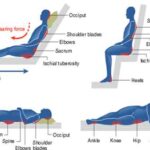
This guide provides practical strategies for preventing and managing pressure injuries in terminally ill patients. Learn how to assess risk, optimize nutrition, reposition properly, choose support surfaces, and care for the skin. Get recommendations for home, hospice, and hospital settings, as well as pain management and infection control. Empower yourself with evidence-based tips to improve your loved one's comfort and quality of life.
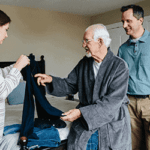
Explore practical solutions for managing disappearing clothing in dementia care. Learn about iron-on name labels, simplified clothing choices, and the importance of family-facility collaboration. This guide offers practical tips to ensure your loved one with dementia always has the right clothes, reducing stress for patients and caregivers.
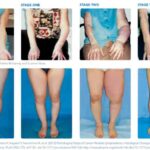
Lymphedema is a chronic condition that affects millions of people worldwide, especially those who have undergone cancer treatment or have other lymphatic disorders. It occurs when the lymphatic system, which drains excess fluid and waste from the tissues, is damaged or blocked. The most common symptom of lymphedema is swelling of the affected limb, which can range from mild to severe. Lymphedema can have a significant impact on the quality of life of patients with serious illnesses, such as cancer, heart failure, or chronic kidney disease. In this article, we will discuss hospice best practices for the management of lymphedema, with a focus on the needs and preferences of terminally ill patients, family members, and caregivers.
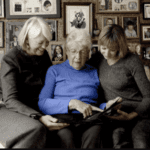
Dementia affects memory, thinking, and behavior, presenting challenges for patients and caregivers. This article discusses the best products for managing these challenges, enhancing quality of life for those with dementia.

Explore the Dementia Care Essentials book series, a comprehensive collection of nine guides addressing vital aspects of dementia care. From managing hallucinations to optimizing nutrition, these books provide invaluable insights for caregivers, healthcare professionals, and families navigating the challenges of dementia

Discover essential strategies for managing adrenal insufficiency crises in terminally ill patients. Learn about symptoms, risk factors, and crucial interventions to ensure patient comfort and safety. This guide provides valuable insights for hospice nurses and caregivers in this critical condition.
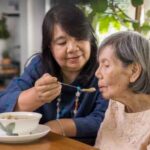
Discover how the GUIDE model can be applied in hospice and palliative care, offering improved support for dementia patients and their caregivers. Learn best practices and implementation strategies.

Discover the commonalities between dementia and autism spectrum disorders (ASD), crucial for caregivers navigating symptoms. Access support resources for comprehensive care.

Discover essential insights and practical advice for family members and caregivers of individuals with traumatic brain injury, focusing on understanding, supporting, and managing challenges effectively.

Do you worry about a loved one's memory issues or odd behavior? Learn the key differences between senility and dementia, their symptoms, causes, and ways to manage or prevent them. Understanding these conditions can help you offer better support and care for those affected.

This article will give you more knowledge, confidence, and comfort in dealing with dementia. You will also learn how to connect with people who share your experiences and challenges and can offer you emotional, practical, and informational support. You will realize that you are not alone and can make a difference in your loved one’s life.
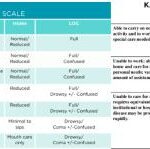
Explore the crucial roles of Karnofsky Performance Status (KPS) and Palliative Performance Score (PPS) in palliative and hospice care. This comprehensive guide helps nurses and caregivers understand these assessment tools, their applications, and critical differences, empowering them to provide more effective, patient-centered care.
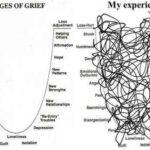
Discover how to navigate the complex emotions of end-of-life care, particularly anger. This comprehensive guide offers caregivers practical strategies for understanding, managing, and coping with personality changes in terminally ill loved ones.

Learn about various financial assistance options available for terminally ill patients who need hospice or palliative care but lack Medicare, Medicaid, private insurance, or the means to self-pay.

Explore why side effects from medications can emerge after initial use and understand the critical need for vigilant monitoring and regular medication reconciliation to ensure patient safety and efficacy.
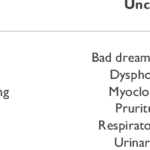
Learn about uncommon opioid side effects like myoclonus and hyperalgesia, and how they impact you and your family. This guide explains these conditions, offers tips for managing them, and highlights the role of hospice in providing comfort and support.

Understanding Dementia with Lewy Bodies (DLB) and Parkinson's disease (PD) is crucial for providing the best care. This guide helps families know what to expect and how to support their loved ones through these challenging conditions.

Hospice nurses are crucial in comforting and supporting patients nearing death and their families. This article explores what to expect from hospice care, focusing on patient assessments, educational discussions, and addressing common family concerns.

RUSH Medical Center's Caring for Caregivers (C4C) program offers vital support to those caring for adults 60 and older at home. Learn about the program's comprehensive approach, including skill-building sessions, planning assistance, and care-team coordination. Discover how C4C makes a difference in caregivers' lives and improves patient outcomes.
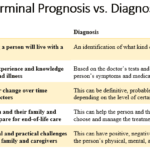
Learn the difference between a terminal prognosis and a diagnosis, and get practical tips and resources to help you and your loved one navigate this challenging time.

Discover how "poop muffins" and "power pudding" can help maintain regular bowel movements. These fiber-rich recipes are especially beneficial for those experiencing constipation, including the elderly and individuals on certain medications. Learn how to make these tasty, digestive-friendly treats at home.
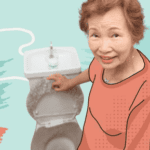
Understanding bowel movements in terminally ill patients is crucial for their comfort and dignity. This guide offers practical tips for caregivers and hospice nurses to manage constipation, diarrhea, and other bowel issues, ensuring patients' better quality of life.

Explore comprehensive approaches to managing hallucinations in loved ones with dementia. This article covers pharmacological methods, focusing on Seroquel and non-drug strategies such as Naomi Feil's validation therapy. Learn how to validate feelings, de-escalate fear, and improve the quality of life for those experiencing cognitive impairment.
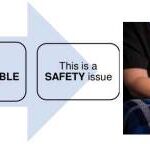
Discover how to use the CUS tool and Caring Feedback Model to advocate for your loved one's health. This guide empowers caregivers to communicate effectively with healthcare providers, ensuring their concerns are heard and addressed.